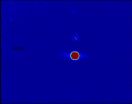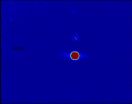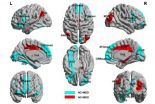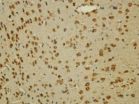(Press-News.org) VIDEO:
Physicists from New Zealands' University of Otago have pushed the frontiers of quantum technology by developing a steerable 'optical tweezers' unit that uses intense laser beams to precisely split minute...
Click here for more information.
Physicists at New Zealand's University of Otago have pushed the frontiers of quantum technology by developing a steerable 'optical tweezers' unit that uses intense laser beams to precisely split minute clouds of ultracold atoms and to smash them together.
The Otago researchers' feat is set to enhance efforts to understand the mysterious ways that atoms interact at temperatures of less than a millionth of a degree above absolute zero. Its potential applications include new tools for probing microscopic structures or for sensors that can map minute variations in magnetic fields, says lead researcher Dr Niels Kjaergaard.
A description of their cutting-edge system is published in the April 1 issue of the US journal Optics Letters. It details an experiment in which the researchers used the technology to split a single ultracold cloud of rubidium atoms sequentially into 32 daughter clouds, spreading them out over nearly half a centimetre.
"This sort of precise control of these atoms is like being able to pull a delicate snowflake into two clean halves with your bare hands. It's quite remarkable that we are able to manipulate such minute and fragile samples while moving them such a comparatively large distance," Dr Kjaergaard says.
VIDEO:
Physicists from New Zealands' University of Otago have pushed the frontiers of quantum technology by developing a steerable 'optical tweezers' unit that uses intense laser beams to precisely split a...
Click here for more information.
The experimental setup involves steering horizontal and vertical laser beams around through their interaction with precisely controlled travelling acoustic waves. These steerable laser beams confine and move the atoms. As well as splitting atom clouds, the system allows them to be collided.
"Tongue-in-cheek, we like to refer to our setup as the 'Littlest Hadron Collider'. In some ways it's the complete opposite of what is the world's largest and most powerful particle collider, because instead of using extreme acceleration, we smash our atom clouds together at a pedestrian pace of up to a metre per second," Kjaergaard says.
The steerable optical tweezers unit was constructed as part of Kris Roberts' Honour's thesis project in Dr Kjaergaard's research group at the Jack Dodd Centre for Quantum Technology at the Department of Physics, while the control system for the acoustic waves was built by Master's student Thomas McKellar.
"For researchers who are still students, these are quite notable achievements and I'm very proud of their work. It demonstrates the fantastic training opportunities that Otago can offer in its Physics programme," Dr Kjaergaard says.
INFORMATION:
Kris is now a Master's student in Dr Kjaergaard's research group. The group's work on the tweezers system is funded through a Marsden Fund of New Zealand grant.
New Zealand physicists split and collide ultracold atom clouds
Researchers develop steerable 'optical tweezers' unit
2014-03-31
ELSE PRESS RELEASES FROM THIS DATE:
Childhood virus may increase type 1 diabetes risk
2014-03-31
The study, published today in PLOS Pathogens, explored the ways the rotavirus infection contributes to autoimmune disease in mice, and researchers believe the breakthrough could be relevant to human infection with rotavirus.
The research found that it may be the "bystander effect" that causes the rotavirus infection to accelerate the onset of type 1 diabetes.
The "bystander effect" suggests that the virus provokes a strong activation of the immune system, which then spills over, allowing the immune system to attack not only the viral intruder but some of the body's ...
Role of type-2 astrocytes on the repair of spinal cord injury
2014-03-31
Increasing expression of bone morphogenetic proteins at the lesion site of the central nervous system possibly induces oligodendrocyte precursor cells to differentiate into type-2 astrocytes. While the restriction of oligodendrocyte differentiation could affect remyelination, it remains poorly understood how type-2 astrocytes regulate regeneration and functional recovery. Thus, examining the effects of type-2 astrocytes on neuronal growth is helpful in understanding the possible influential factors of oligodendrocyte precursor cells on axonal regeneration and remyelination, ...
Resting-state functional connectivity as an auxillary diagnosis of depression
2014-03-31
According to a paper published in the Neural Regeneration Research (Vol. 9, No. 2, 2014), both depressive patients and healthy controls presented typical small-world attributes, and compared with healthy controls, characteristic path length was significantly shorter in depressive patients, suggesting development toward randomization. Patients with depression showed apparently abnormal node attributes at key areas in cortical-striatal-pallidal-thalamic circuits. In addition, right hippocampus and right thalamus were closely linked with the severity of depression. An artificial ...
How does acupuncture at Baihui and Dazhui reduce brain cell apoptosis in heroin readdicts?
2014-03-31
Acupuncture has therapeutic effects on cerebral ischemia, dementia, epilepsy and other brain diseases, and also functions to repair the nervous system. Dazhui (GV14) and Baihui (GV20) are the preferred acupoints for treatment. However, whether acupuncture can treat addiction and prevent readdiction through changes to brain cell ultrastructure remains unknown. A research team from Anhui University of Traditional Chinese Medicine in China pointed out that cell apoptosis was observed in the hippocampus and frontal lobe of heroin readdicted rats by electron microscopy, and ...
Metformin does not improve heart function in patients without diabetes
2014-03-31
Although some research has suggested that metformin, a medication often used in the treatment of diabetes, may have favorable effects on ventricular (heart) function, among patients without diabetes who underwent percutaneous coronary intervention (PCI; a procedure such as stent placement used to open narrowed coronary arteries) for ST-segment elevation myocardial infarction (STEMI; a certain pattern on an electrocardiogram following a heart attack), treatment with metformin did not result in improved ventricular function, according to a JAMA study released online to coincide ...
Cleveland Clinic study shows bariatric surgery provides long-term control of diabetes
2014-03-31
Cleveland: A study by Cleveland Clinic researchers shows bariatric surgery is a highly effective and durable treatment for type 2 diabetes in obese patients, enabling nearly all surgical patients to be free of insulin and many to be free of all diabetic medications three years after surgery.
The STAMPEDE (Surgical Therapy And Medications Potentially Eradicate Diabetes Efficiently) trial was simultaneously published in the New England Journal of Medicine and presented today at the Annual Scientific Session of the American College of Cardiology in Washington, D.C.
The ...
Addicts who live in the moment may benefit most from certain kinds of treatment
2014-03-31
Drug-dependent people who least take the future into account may, paradoxically, be the ones to benefit the most from certain treatments.
The human instinct to choose instant gratification, such as a drug high, over a later benefit, such as good health — known as future or delay discounting — is strong in people with drug dependencies. An important component of addiction is failure to exert self-control in recognition of future consequences.
In a study in Clinical Psychological Science, a team of researchers has found an unexpected pattern that may provide hope for ...
Diamonds are an oil's best friend
2014-03-31
A mixture of diamond nanoparticles and mineral oil easily outperforms other types of fluid created for heat-transfer applications, according to new research by Rice University.
Rice scientists mixed very low concentrations of diamond particles (about 6 nanometers in diameter) with mineral oil to test the nanofluid's thermal conductivity and how temperature would affect its viscosity. They found it to be much better than nanofluids that contain higher amounts of oxide, nitride or carbide ceramics, metals, semiconductors, carbon nanotubes and other composite materials. ...
Academic workplace bias against parents hurts nonparents too
2014-03-31
Parents have reported before that trying to balance work and family obligations comes with career costs. But a new study from Rice University and the University of California, San Diego, shows that university workplace bias against scientists and engineers who use flexible work arrangements may increase employee dissatisfaction and turnover even for people who don't have children.
"As researchers, we're interested in understanding the gap between the traditional 9-to-5 work setting and what workers actually need," said Erin Cech, an assistant professor of sociology at ...
Clonidine doesn't reduce deaths or heart attack after non-cardiac surgery
2014-03-31
WASHINGTON (March 31, 2014) — Clonidine – a drug that reduces blood pressure and heart rate – increased rates of clinically concerning hypotension and non-fatal cardiac arrest after noncardiac surgery, according to the POISE-2 trial presented at the American College of Cardiology's 63rd Annual Scientific Session. With more than 10,000 patients in 23 countries, this randomized clinical trial is the largest study of clonidine in surgical patients.
The study's findings caught researchers by surprise. The earlier POISE-1 study found that beta blockers greatly reduced risk ...
LAST 30 PRESS RELEASES:
Pekingese, Shih Tzu and Staffordshire Bull Terrier among twelve dog breeds at risk of serious breathing condition
Selected dog breeds with most breathing trouble identified in new study
Interplay of class and gender may influence social judgments differently between cultures
Pollen counts can be predicted by machine learning models using meteorological data with more than 80% accuracy even a week ahead, for both grass and birch tree pollen, which could be key in effective
Rewriting our understanding of early hominin dispersal to Eurasia
Rising simultaneous wildfire risk compromises international firefighting efforts
Honey bee "dance floors" can be accurately located with a new method, mapping where in the hive forager bees perform waggle dances to signal the location of pollen and nectar for their nestmates
Exercise and nutritional drinks can reduce the need for care in dementia
Michelson Medical Research Foundation awards $750,000 to rising immunology leaders
SfN announces Early Career Policy Ambassadors Class of 2026
Spiritual practices strongly associated with reduced risk for hazardous alcohol and drug use
Novel vaccine protects against C. diff disease and recurrence
An “electrical” circadian clock balances growth between shoots and roots
Largest study of rare skin cancer in Mexican patients shows its more complex than previously thought
Colonists dredged away Sydney’s natural oyster reefs. Now science knows how best to restore them.
Joint and independent associations of gestational diabetes and depression with childhood obesity
Spirituality and harmful or hazardous alcohol and other drug use
New plastic material could solve energy storage challenge, researchers report
Mapping protein production in brain cells yields new insights for brain disease
Exposing a hidden anchor for HIV replication
Can Europe be climate-neutral by 2050? New monitor tracks the pace of the energy transition
Major heart attack study reveals ‘survival paradox’: Frail men at higher risk of death than women despite better treatment
Medicare patients get different stroke care depending on plan, analysis reveals
Polyploidy-induced senescence may drive aging, tissue repair, and cancer risk
Study shows that treating patients with lifestyle medicine may help reduce clinician burnout
Experimental and numerical framework for acoustic streaming prediction in mid-air phased arrays
Ancestral motif enables broad DNA binding by NIN, a master regulator of rhizobial symbiosis
Macrophage immune cells need constant reminders to retain memories of prior infections
Ultra-endurance running may accelerate aging and breakdown of red blood cells
Ancient mind-body practice proven to lower blood pressure in clinical trial
[Press-News.org] New Zealand physicists split and collide ultracold atom cloudsResearchers develop steerable 'optical tweezers' unit






